Interview with the new Chairman of EDP's GSB
"Being moderate can be an asset in today's world”
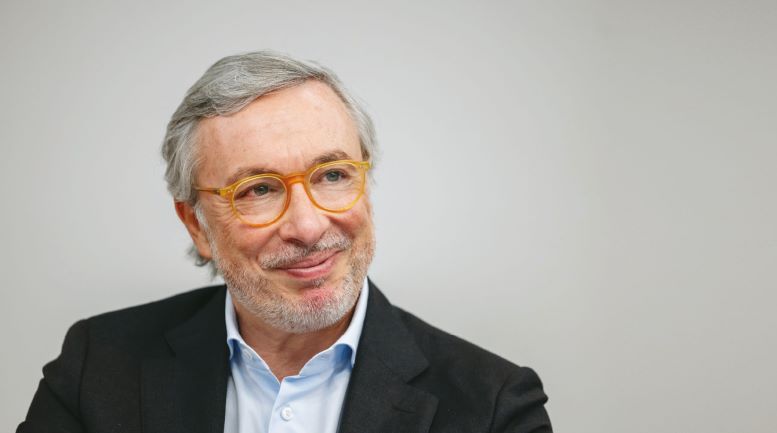
António Lobo Xavier, whose professional career has been characterized by diversity and a desire to live each new experience to the fullest, is now embarking on a new challenge: chairing the General and Supervisory Board at EDP. He is known a thoughtful and analytical man who describes himself as independent, self-critical, and a promoter of consensus in all aspects of his life. Confident that he will be equal to the task, he strives to see himself as part of something bigger, in which everyone around him matters.
Who is António Lobo Xavier?
I was born in 1959, in Coimbra, where my father was a professor. The country was completely different at that time. Today, at 64, I have four children and four grandchildren. A family that has been the most important part of my life for 37 years, and that I try to preserve and look after. “I don’t do anything without listening to my family. It’s not binding, but I like to know their opinion.”
For most of my career, I’ve been a lawyer. I also taught law, but I was always a lawyer—and later a corporate lawyer. This sparked my interest in the internal workings of companies and made me want to be a part of that. I never liked being one of those lawyers who were never part of the strategy or privy to the discussions about operations. I took on executive roles very early on. For example, I was an executive of a listed car retail company, SIVA, before I turned 40. At the time, that was quite rare. Then I was an executive director for more than ten years at Sonaecom. After that, I held many nonexecutive roles in various sectors—textiles, wines, glass packaging—I was at NOS, and I was vice-president at BPI before joining EDP. So I’ve always led that kind of doublelife: half in the law firm, half in companies. The directors and shareholders of those companies have always been happy for me to keep one foot in the legal profession, which is very liberating. And on the other side, there was also acceptance of my having a special role in these companies.
I had a political career that ended too soon. I don’t know if I regret it, but my political career ended with my last stint in the party’s leadership structure, still before the turn of the millennium. I left politics because my professional life was taking up so much of my time. However, I remained connected to political life through a TV show that was the oldest political debate show in Portugal. I was a guest for thirty years. Today, it is called “O Princípio da Incerteza” (in English, “The Uncertainty Principle”), but it has had different names as it moved between stations. It allowed me to keep a close eye on politics. And now I’ve left that stage of my life behind too, because joining EDP entailed ending my legal practice and ending my independent political commentary, because they’re not compatible. I’m now focused almost exclusively on EDP—and on my hobbies.
And what hobbies are those?
To really get to know someone, I think it’s important to know what you do in your spare time. I’ve done motocross almost all my life, which is a little rough for my age, but I still do it when the weather’s good. Age has forced me to upgrade to electric mountain bikes. It still requires a lot of effort, but it’s more gradual. I play guitar and have a large guitar collection which is disproportionate to the amount of time I have to play them. At my legal practice, I was in a rock band with whom I often play at family gatherings, friends’ weddings, friends’ children’s weddings... In fact, the only thing I negotiated with my practice before leaving and coming to EDP was, “Can I still play in band?” I also love cooking and, of course, I love reading, watching movies, watching TV, traveling, all those things that everyone loves.
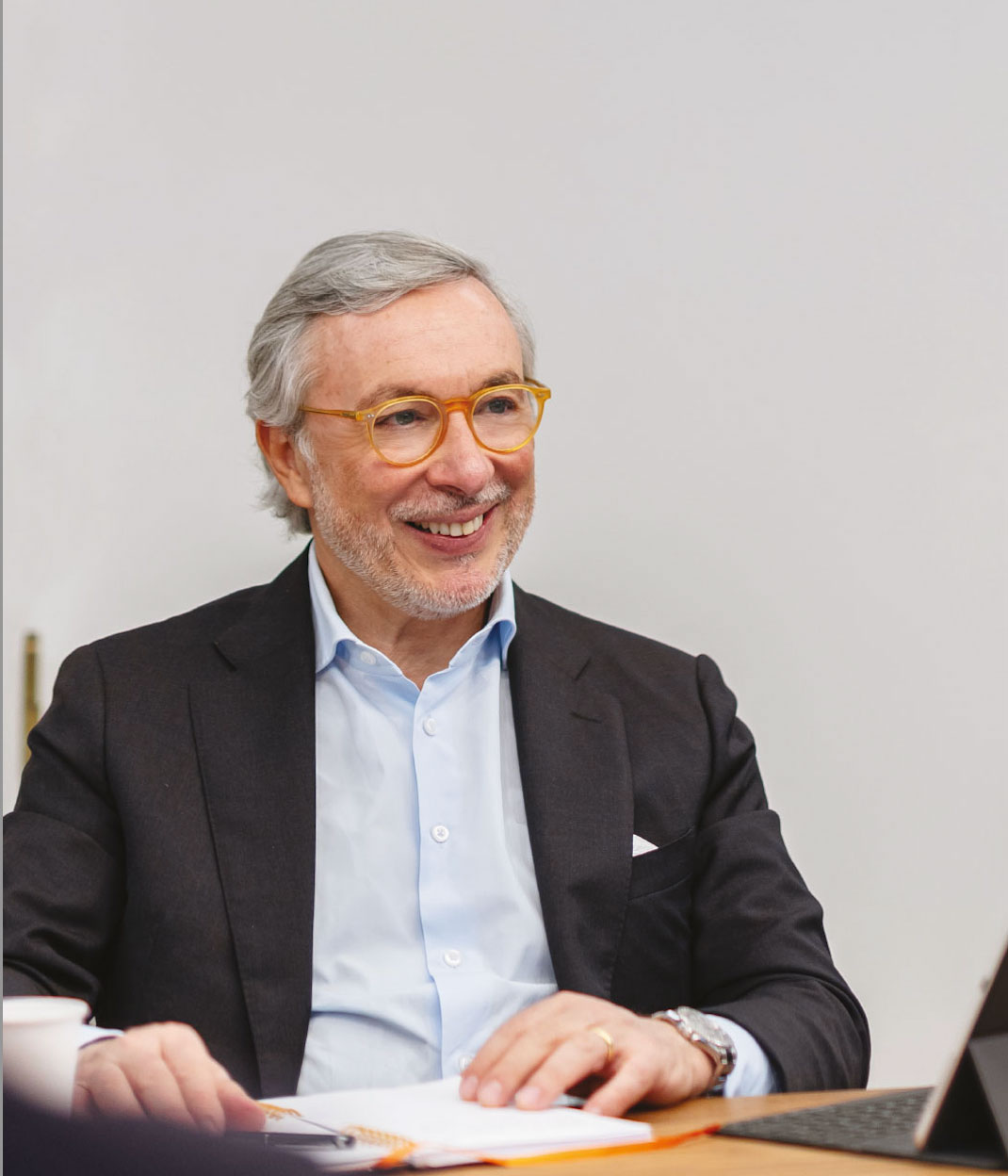
I don’t do anything without listening to my family. It’s not binding, but I like to know their opinion."
So, you’re a family man who seeks consensus even at home, and you also have that sense of adventure. What will all of this bring to EDP and to your new role?
Having freedom is really important. I remember that my father was quite ill, 30 years ago, at the time when I was about to take my first operational executive position at Sonaecom. He really valued his freedom, even in the operating room when he was already very ill, and I remember him telling me: “It’s too early for you to take that position. Keep your freedom.” I chose not to join Sonaecom at that time.
On another occasion, one of my professors— who was a former cabinet minister—suspended his classes to join the Government. At the time, he told us: “Don’t think for a minute that you’re getting rid of me once and for all, because my car keys are always in my pocket.”
I come to EDP with that same sense of freedom: my car keys are always in my pocket. I’m here to fulfill this role to the best of my ability, to help create value for the shareholders, to comply with legal rules and statutes, and to work together with everyone at EDP, but my car keys are always in my pocket. It would be awful if things went wrong, but I know they’re there. And sometimes I even physically reach for them.
I’m not dependent on careers or connections; I’m committed to the objectives of the job. And if it doesn’t work out, that’s fine. But I’m going to make sure that neither my colleagues nor the company’s shareholders feel that my presence is a waste of their time and that they get something out of it.
In what way have such varied experiences in your life shaped your personality?
I’m very critical of others, with plenty of irony. When you’re like that, you become hyper selfcritical and sometimes even a little insecure. What has shaped my life the most? Law, respect for rules and the legal system, and open debate with others. Those 30 years of televised and often aggressive debate have molded me, without me even realizing it. Everyone has a certain temperament - some people are more reserved, I’m extroverted; some people are detail-oriented, I’m a big picture kind of guy.
When I was with Sonaecom, I went to Switzerland to attend a course called “Understanding the Self, Understanding the Others.” Today, I’m obsessed with that concept. We have to understand others and understand how they see us. Everyone is different, and the same sentence can seem like an order to some, an insult to others, and a joke to many. I always try to bear that in mind. Otherwise, I’m who I’ve always been. The different jobs I’ve had haven’t changed me in any fundamental way.
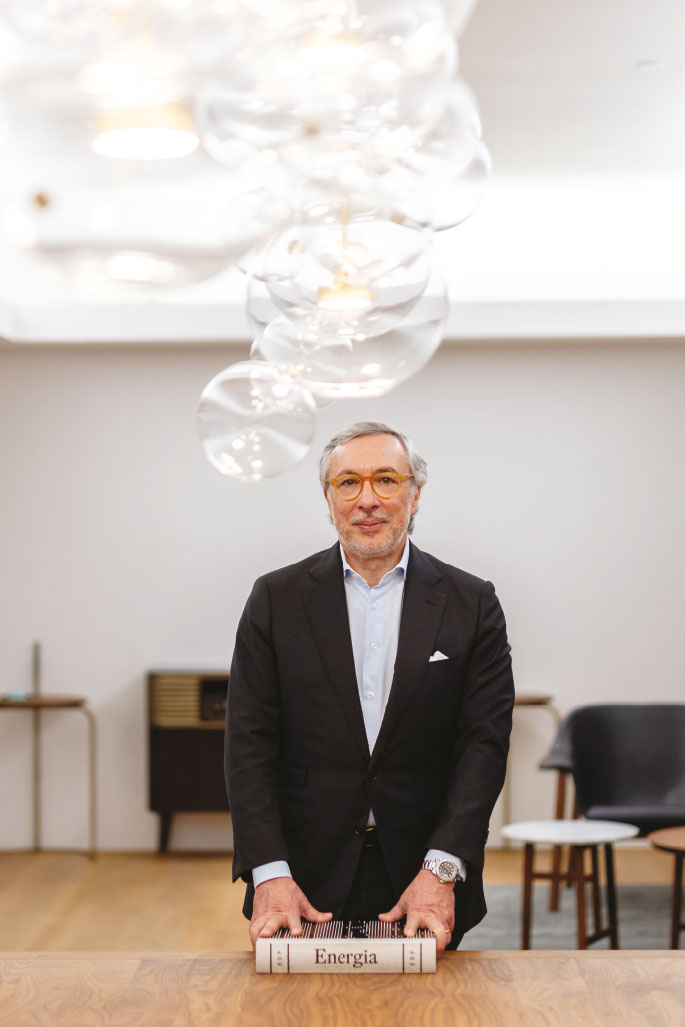
Was that breadth of experiences something you proactively sought out?
I think I was very lucky. People have been very patient with me—and I’ve also tried to be patient with them. For example, I remember joining Sonaecom and being allowed to be an executive 70% of the time and being free to pursue other activities the other 30%. I was fortunate that people realized that I couldn’t be locked down in one place, that I wouldn’t be the same person if that happened. I didn’t actively seek that breadth of experiences, but I’ve always liked doing different things. I knew I wouldn’t be happy if I kept myself tied down to one place.
You’ve been in the public eye throughout your career. How did that end up happening?
When we think about being in the public eye, we sometimes see how tragic and destructive it can be. It can ruin your peace and the peace of your whole family. I was lucky to live in a different time, where being in the public eye didn’t involve social media, radicalization, or divisiveness. That meant that, if I did well, I would be respected by people on all quadrants. The people I trusted most in Parliament on technical matters were from the Portuguese Communist Party, for example.
Unfortunately, that is no longer the case. Today, people are holed up in trenches. The others are always awful. There is no middle ground. And therefore, being in the public eye can quickly destroy you. In my case, it has brought me nothing but good things, but I experienced it at a time when it was easier.
Earlier you talked about others being patient with you, and you’ve talked about luck several times, but luck is also what you make of it.
I’ve always worked hard, I’ve always tried to be the best and I have some anxiety about being a perfectionist. My biggest concern before joining EDP was, “Will I be able to do this?” My consultants and mentors told me that I would be, but it took me a while to convince myself.
And to what extent has your career prepared you for the position you will now hold at EDP?
Life has taught me rigor, lawfulness, and a sacred respect for other people’s money and value. And then, learning about business and its language, numbers, and strategies. I’ve been taught to look at the numbers and see the signs, to look at a strategic plan and see what the challenges are. I think I’m prepared for what lies ahead. But it’s a whole new world. Right now, I’m in that very intensive induction process with consultants from different areas to get a better understanding of the challenges. My colleagues have been tireless in introducing me to every aspect of the business and have left no stone unturned. It shouldn’t take me too long to get up to speed.
"I’m prepared for what lies ahead.”
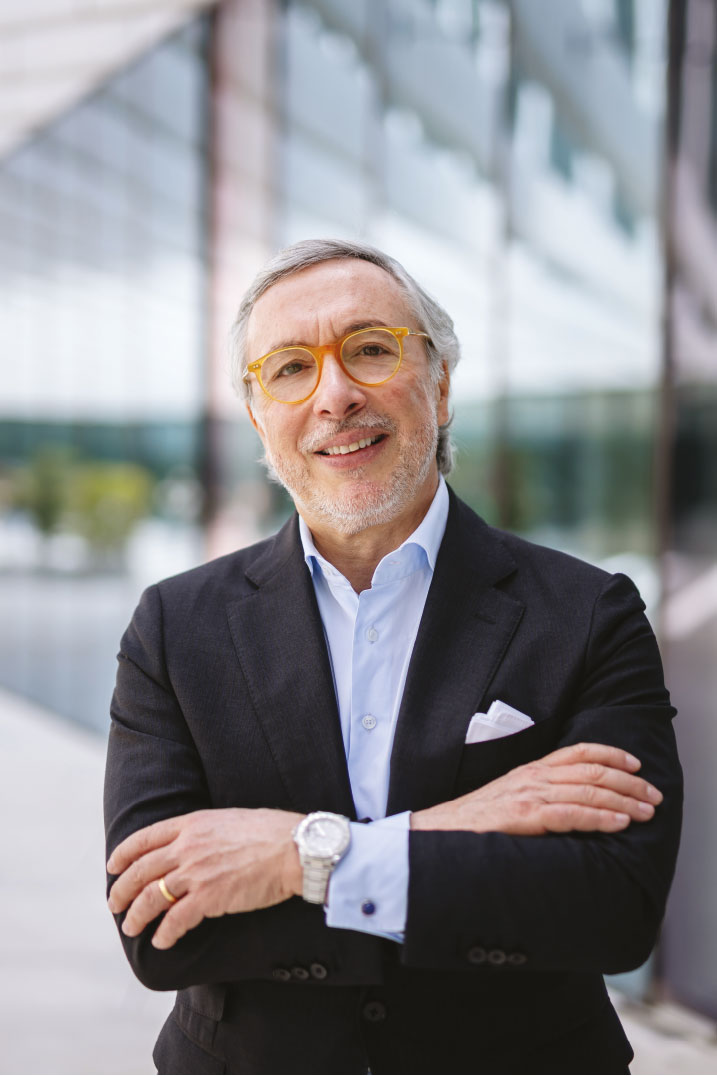
Have you figured out what your priorities and biggest challenges are going to be?
I do, I don’t know if I can talk about them in great detail yet. In other words, tasks like the ones I’m going to be working on at the General and Supervisory Board include several aspects. First, I’m going to oversee a group of people that I’m not familiar with, and I’ll have to convince them, in a business sense, that I’m the right person to lead them. Leadership requires legitimacy.
Second, this General and Supervisory Board has a very unique role in the Portuguese context. It combines responsibilities of the board of directors with those of the supervisory board and of the general shareholders meeting. It’s very complex to manage. The tasks are very different. I have to listen to the shareholders and see their wishes and concerns, manage information and discussions with them. Then I have to work with the executives, not only to get to know the business, but also to help define the medium- and long-term strategy. And then I have to control and supervise them, to make sure they comply with the rules, to understand what the risks are for EDP and where we are doing well... It’s a blend of duties that I’ve never had and that not many people have had.
Is that challenge the reason you accepted this invitation?
To be honest, I’m not the type of person who’s always looking for new challenges. My natural preference is for peace and quiet.
So what motivated you to take on this role?
There are different stages in life. There came a time in my life as a lawyer that I felt I had to stop. I was feeling tired. The same happened with my corporate law practice. Politics was also getting to that point, where you either put up or shut up. The way I work is by getting rid of what doesn’t feel right. EDP is a calling. It’s the largest Portuguese company, with the broadest geographical presence, and with fantastic expectations and ambitions. But if I have to choose between peace and quiet and great challenges and stress, I prefer the peace and quiet.
What is your vision for the future of EDP?
It would be too presumptuous to say I already have a vision. I can see that in terms of sustainability, EDP has managed to blaze a trail at the global level. The public recognition, both of the company and of its executives, shows that EDP is a leader. Today’s world isn’t about wars or conflicts; it’s about energy transition and sustainability. That is where EDP is at the forefront. I think protecting this position while creating value are the company’s most important challenges
The energy transition is indeed at the core of EDP, in a world that is still seeking consensus on combating climate change. What role should EDP play in a matter that is so dependent on international cooperation?
We’re in an international context in which there are once again huge forces pushing us back. Oil and gas is stronger today, paradoxically, than it was two years ago. This is due to various reasons, including the uncertainty of the world, the economic crises, the wars, the pandemic, and the geopolitical challenges. EDP was at the forefront of the energy transition—and then, suddenly, for some people around the world, that’s no longer such an accepted value. For example, there is a lot of pressure to protect short-term value by taking a step back in the energy transition. That is one of the biggest challenges: to convince the stakeholders that this journey is still vitally important—even from the point of view of value creation. It is no longer just a mission to save the world; it is also a mission to contribute to the world’s sustainability, while still producing value. Nowadays, that mission isn’t always clear.
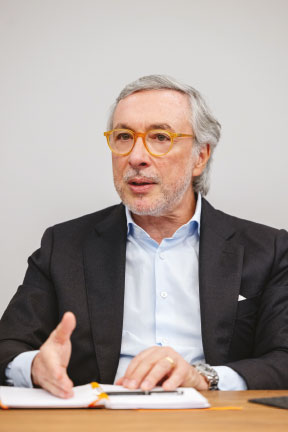
The public recognition, both of the company and of its executives, shows that EDP is a leader.”
What is your view on the climate activist protests happening around the world?
I like to differentiate between climate activists and radical climate activists. I have little respect for the latter, who commit crimes in their form of radical activism. I also feel they choose their targets poorly. Even more so in the case of EDP, because the company is now virtually clean, having abandoned fossil fuels—at no small cost. Radical climate activism against the EDP is ridiculous.
How should companies that are investing in this paradigm shift, such as EDP, respond to accusations of greenwashing?
I don’t understand how EDP can be accused of greenwashing. We can’t deny the facts: we have the wind farms, the hydro power dams, the solar power stations... Does anyone know of any other way to make the transition to clean energy production so quickly? If EDP isn’t a model company in the energy sector, then there isn’t one. The only way you can go without water or heating is if you live in the wild.
How can we reach out to the younger generation so that we are all part of the same journey?
The younger generations are more idealistic, but that’s something we all have in common. When I was 18, I was also much more idealistic and driven. That’s commendable. On the other hand, it’s true that the world is rigged against the younger generations. In 30 years, they will still be paying for our decisions.
The kind of activism we’re seeing is flashy— roads and bridges are blocked, signs are put up, cans of paint are thrown—but there’s no structured discourse to show that life in democratic industrial societies is somewhat rigged against the future and against the youngest, and always to the benefit of the oldest.
How do you go about creating a world in which the older generation is protected and life expectancy keeps on increasing and at the same time give the younger generation freedom to grow and develop? That is the big challenge.
In 30 years’ time, we will certainly look at the subject of artificial intelligence from a different perspective. Is this a risk or an opportunity?
All opportunities carry risk. For someone like myself who likes progress and has an open mind, it’s difficult to look at what artificial intelligence brings to the table and say the risk outweighs the opportunities. The opportunities are overwhelming. All revolutions have had brutal social costs. In our current mindset, we aren’t prepared for those social costs—nor do we want them.
And therefore, those opportunities of artificial intelligence are only good for our democratic and social mindset, as I see it in Europe, for example, if we manage to stop the social consequences. If they’re treated in a Darwinian way, with the survival of the fittest, it will be a disaster.
If we’re smart enough to offset the social effects, which may be greater than in the industrial revolution, if we’re smart enough and creative enough to do so, it can only be a good thing.

I’m not confrontational or someone who wants to live or die by the sword.”
And how do you think artificial intelligence will impact the energy sector?
It will have a real impact across the board. From simplifying the grids to grid management technology, as well as ways of producing energy—even the greenest ones—marketing, and customer relations.
People will have to adapt their lives and their jobs to these new tools. It won’t be for everyone. Because it will take study, it will take skills.
At EDP, despite all our modernity and technology, we have a very large number of employees. Transformation has to be worked out and thought through in terms of the lives of these employees. And this balance, which has not yet been studied, is the most difficult part of the equation.
The world is also going through a very sensitive geopolitical period. And the sector in which EDP operates is also very geopolitically sensitive. How do you see your role in that context?
I hope to have few geopolitical problems, but I don’t turn a blind eye to them. EDP is present in several countries. That’s something I’m used to, especially from my experience in the glass packaging sector. BA Glass, where I was on the board of directors, has a presence in Mexico, Romania, Bulgaria, Poland, Greece, Spain, Portugal, and Brazil. I’m used to understanding the differences between jurisdictions, whether it’s the legal system, the mindset, or the culture.
EDP is extremely diverse, which helps. If things aren’t going well in one place, they may be going much better in another. But managing all of this is a real challenge. I don’t want to exaggerate, but to a large extent, part of the world is in pre-war mode. All businesses with exposure to multiple countries have to deal with geopolitics. EDP is no exception. We also have a variety of shareholders with different perspectives on the world.
I think that what is expected of me—as I have political experience and have even been part of a Council of State—is that I have some ability to protect EDP’s interests in the face of all this. Whether it’s jurisdictions, or even the style and culture of the shareholders, or the culture of the employees. I think those who invited me had the idea that I’m someone who is used to establishing consensus, and being able to reach compromises and being a moderate can be an asset in today’s world. Let’s see if it does any good.
So is the main message you want to convey to employees, shareholders, and stakeholders that you are a consensus builder?
I’m aware of the challenges. I’m also aware of the successes. I’m aware of the need to strike the right balance to be able to continue on this successful path. I’m not confrontational or someone who wants to live or die by the sword. It’s just not my style. And I think that sort of balanced approach is important when it comes to my new role.
